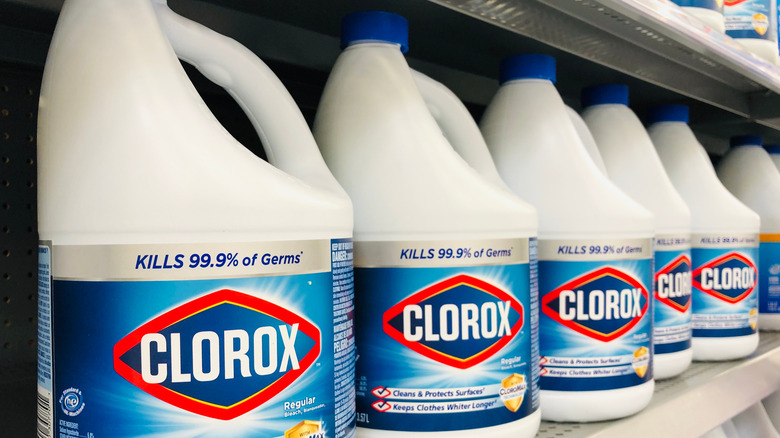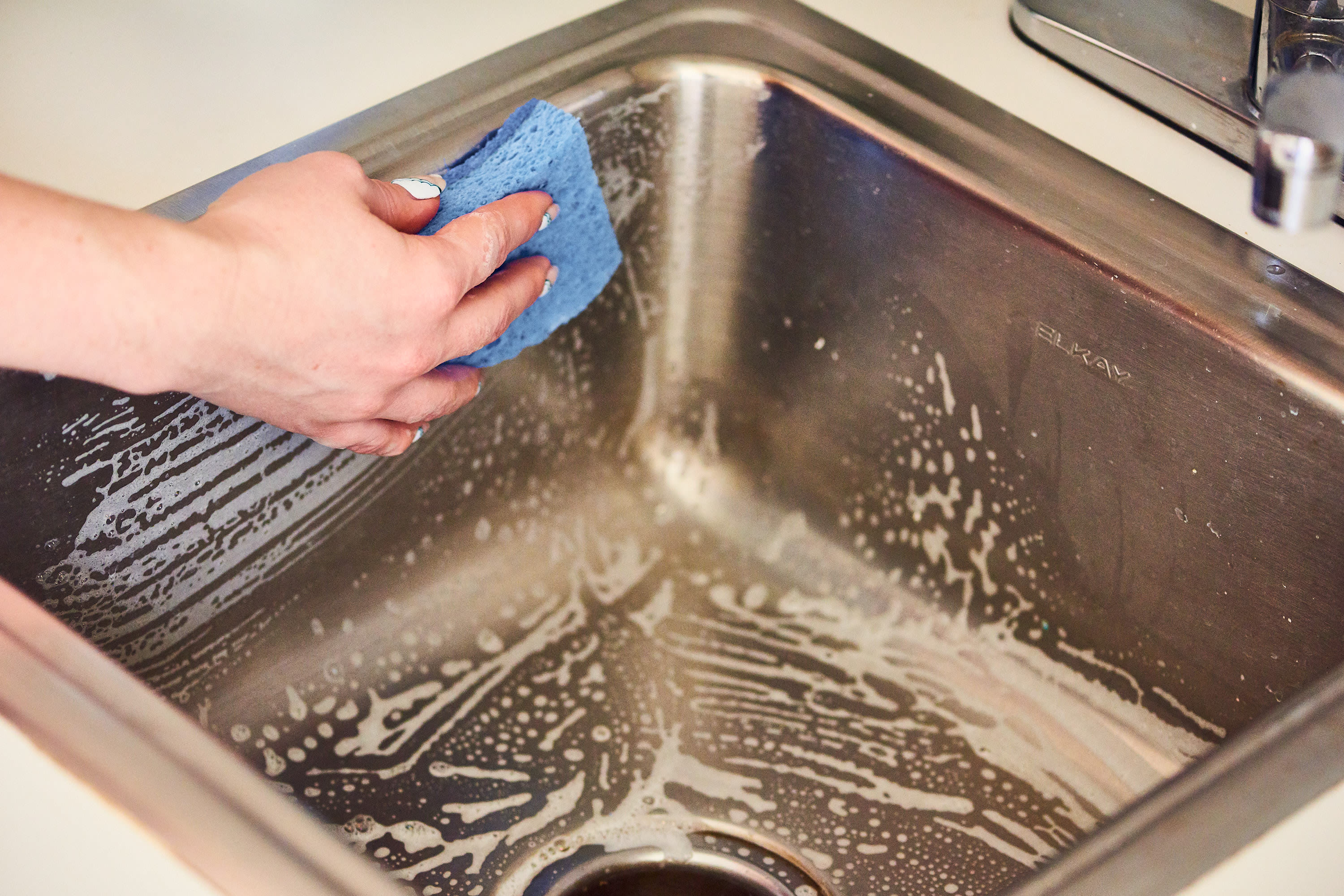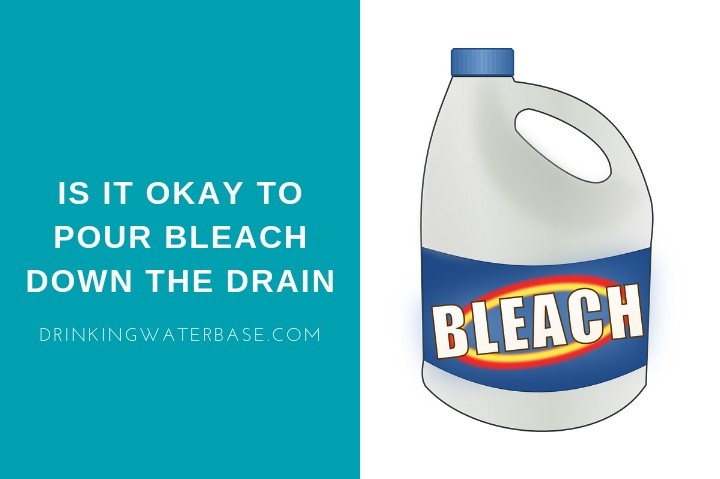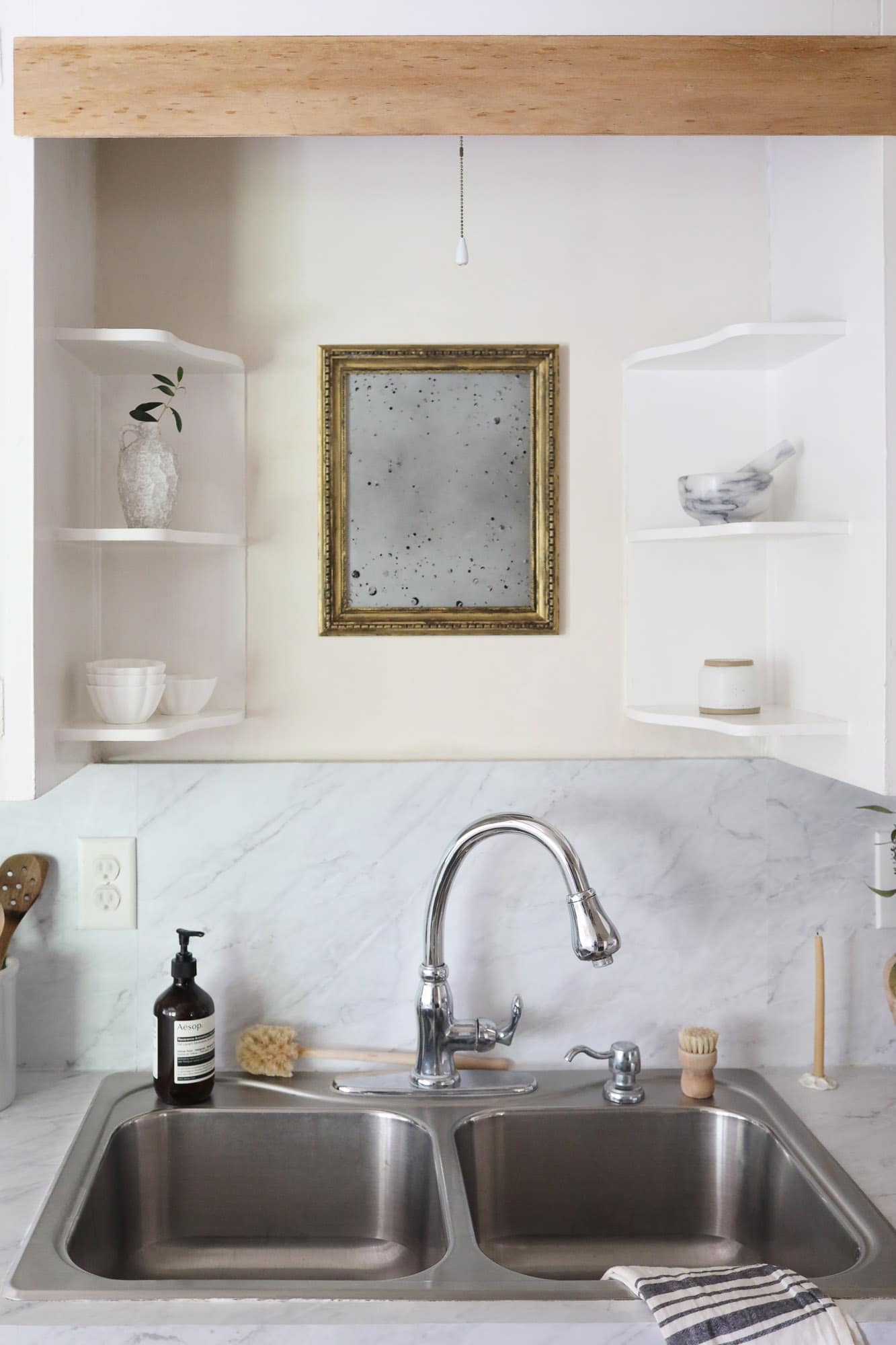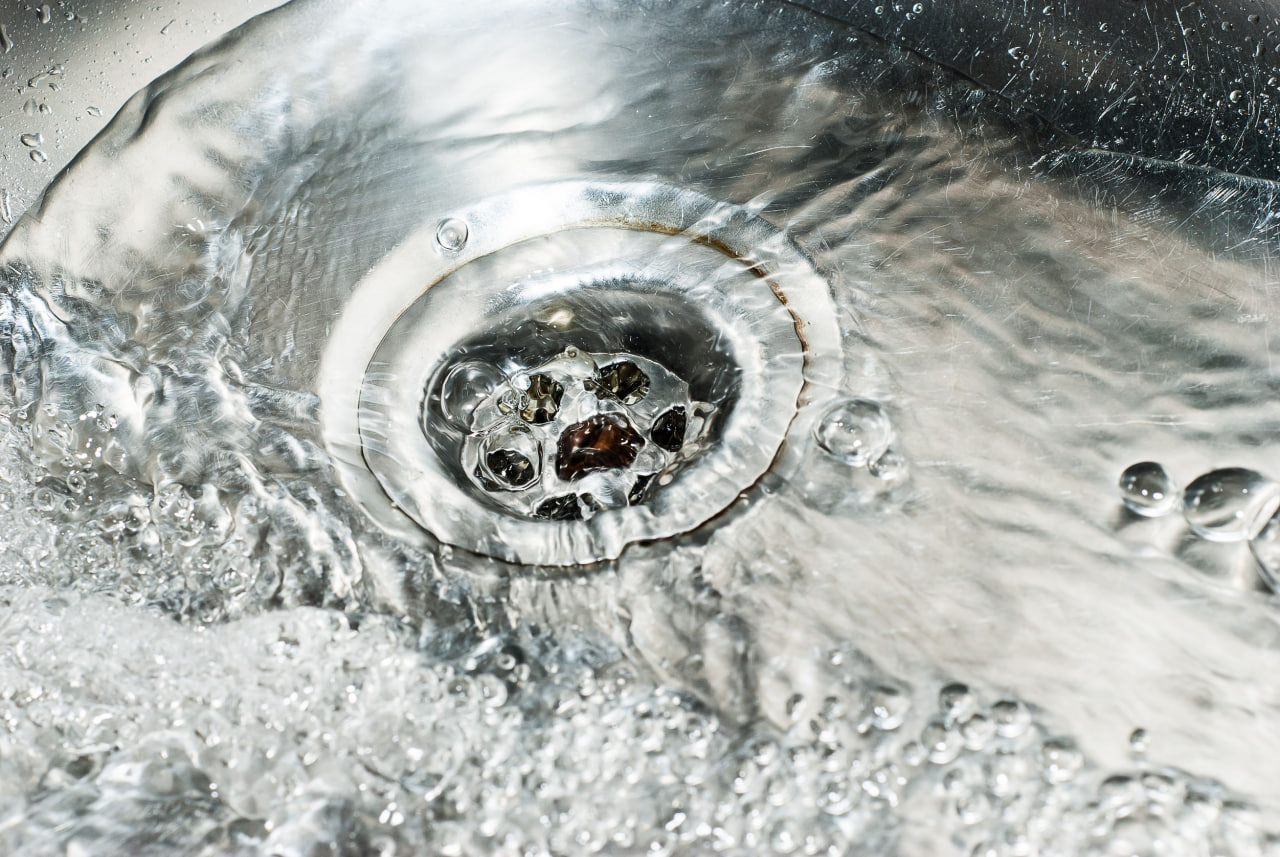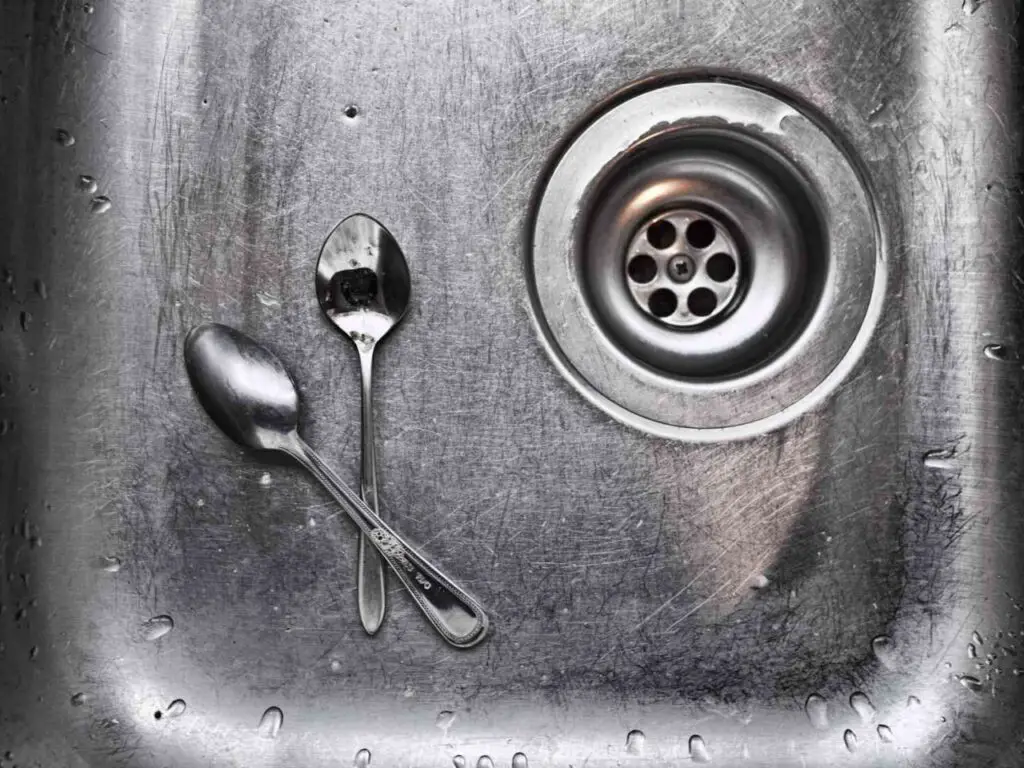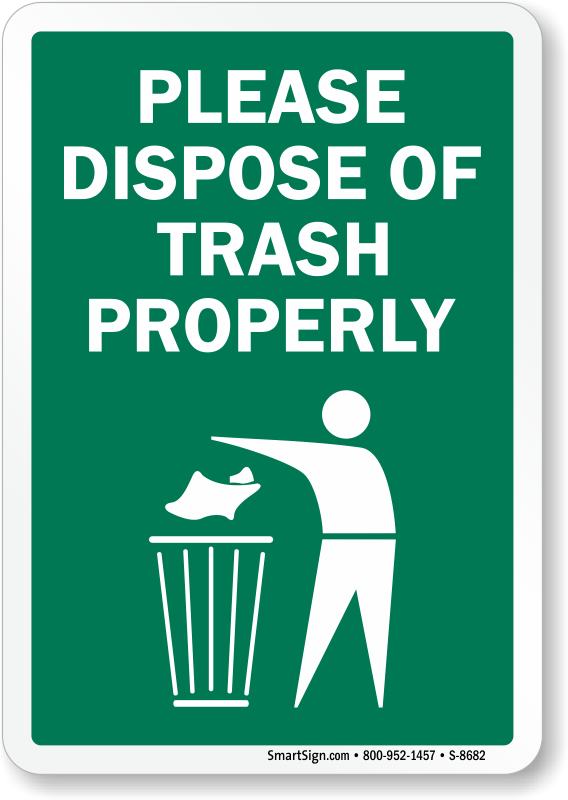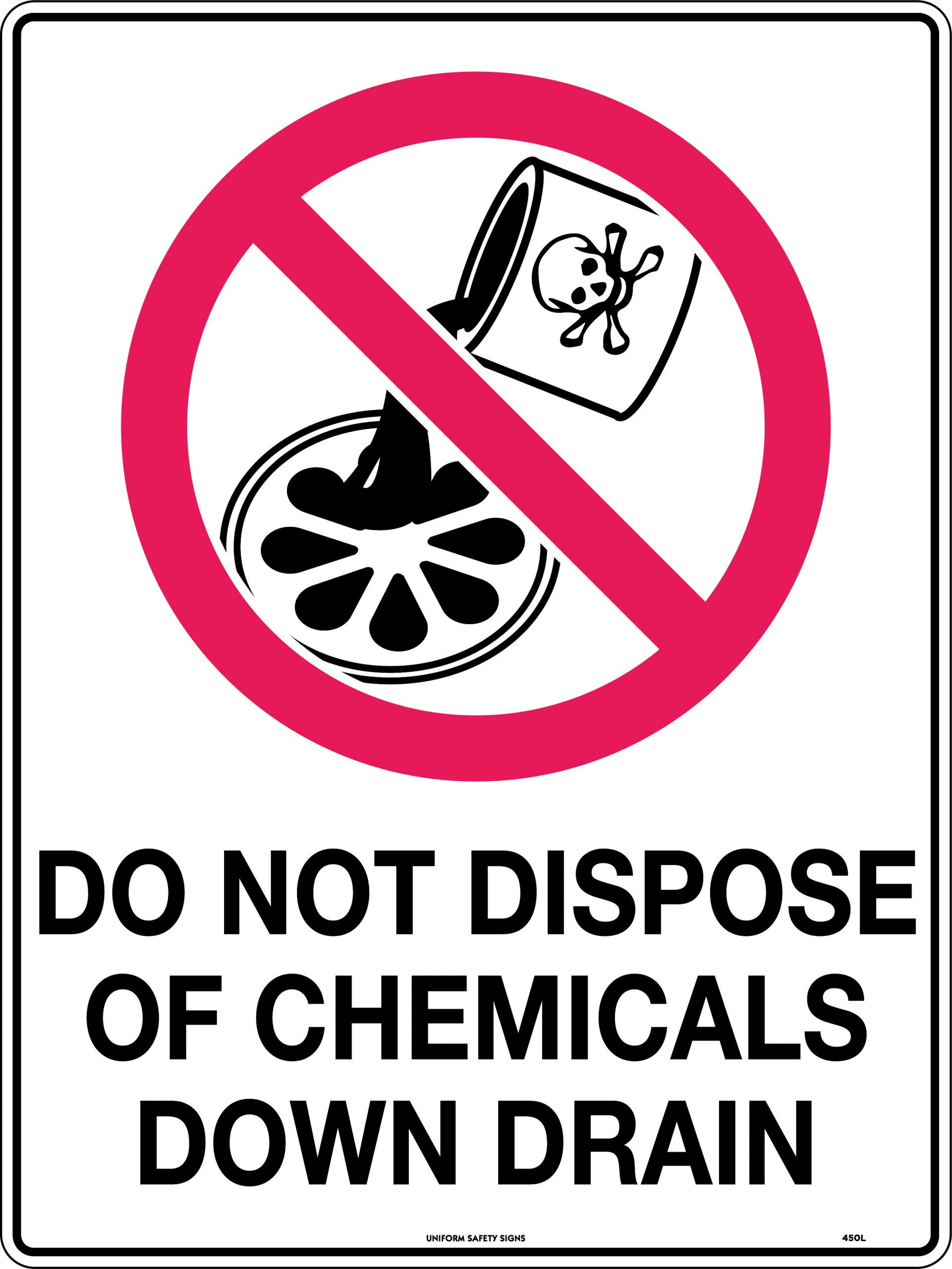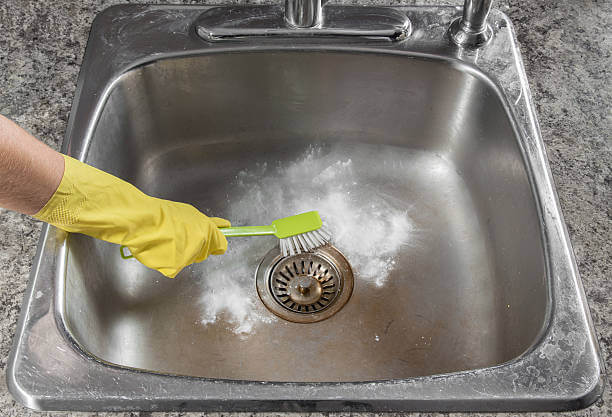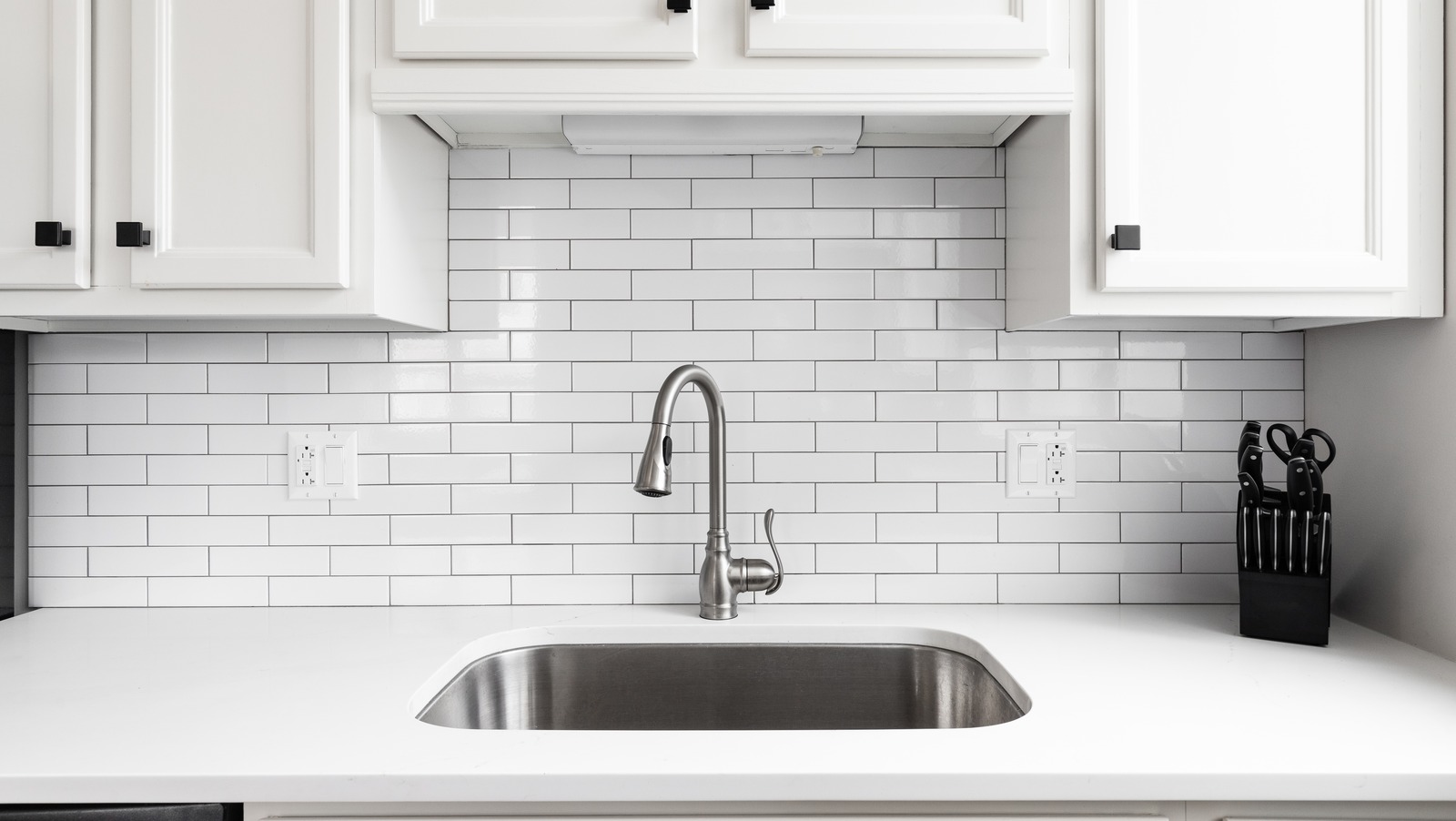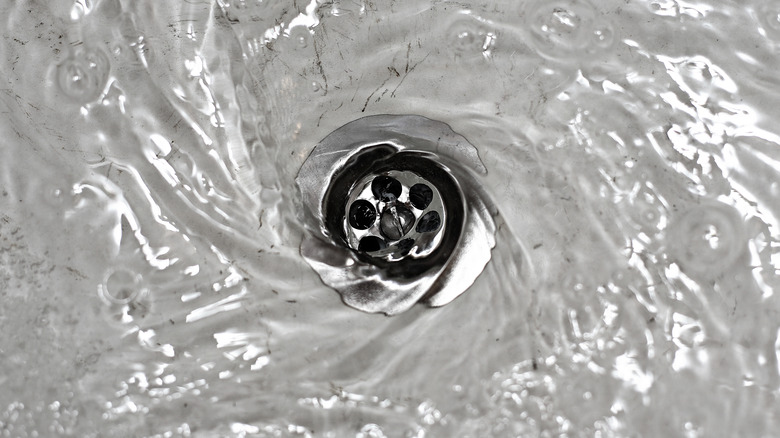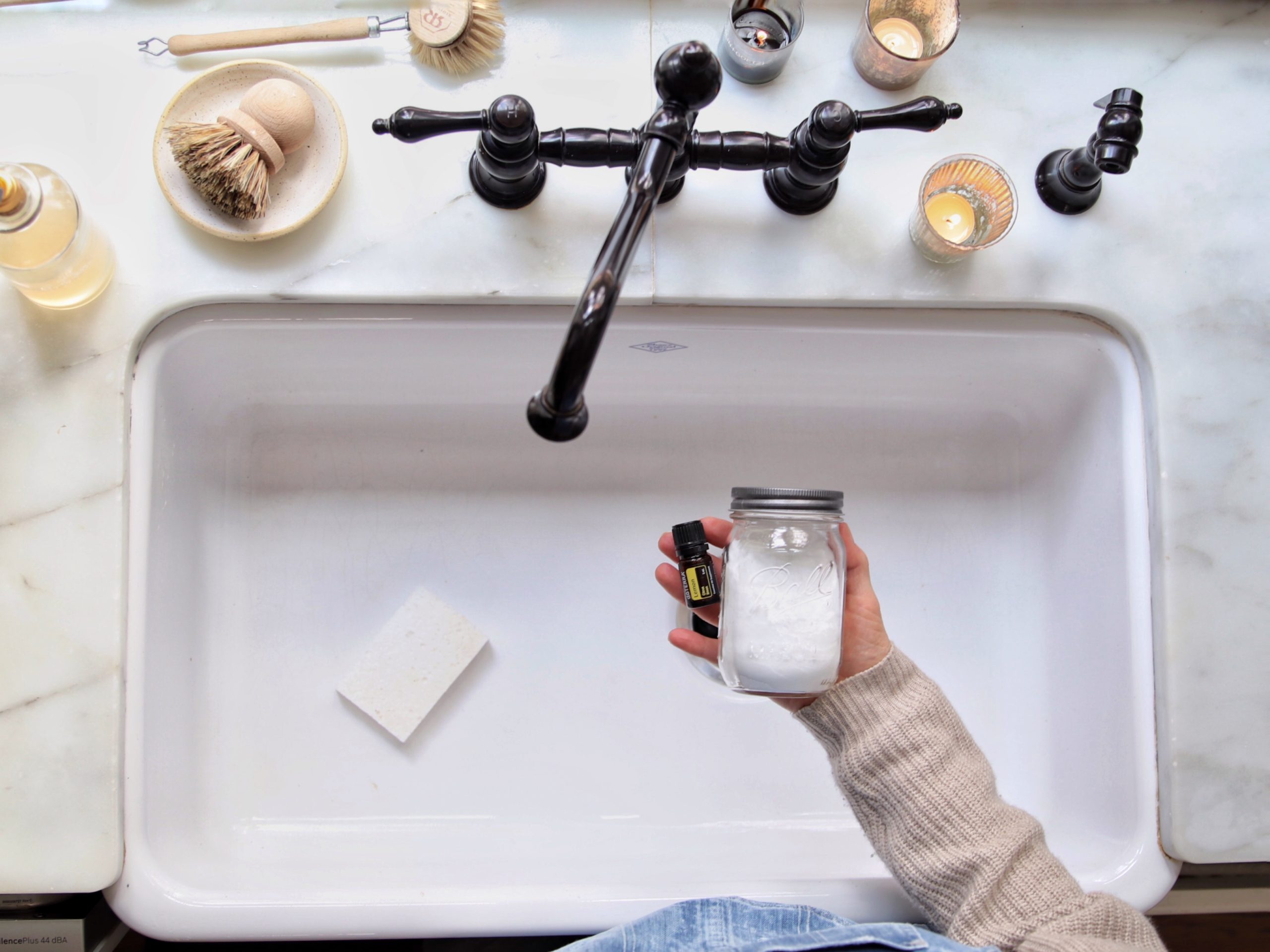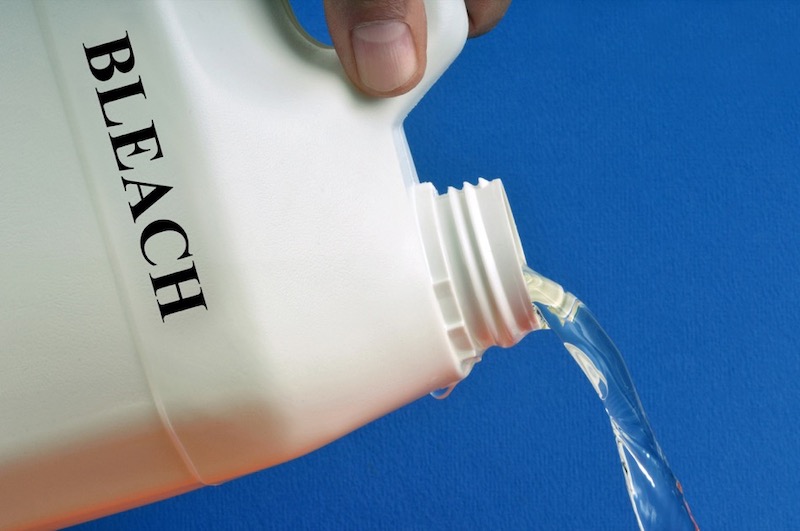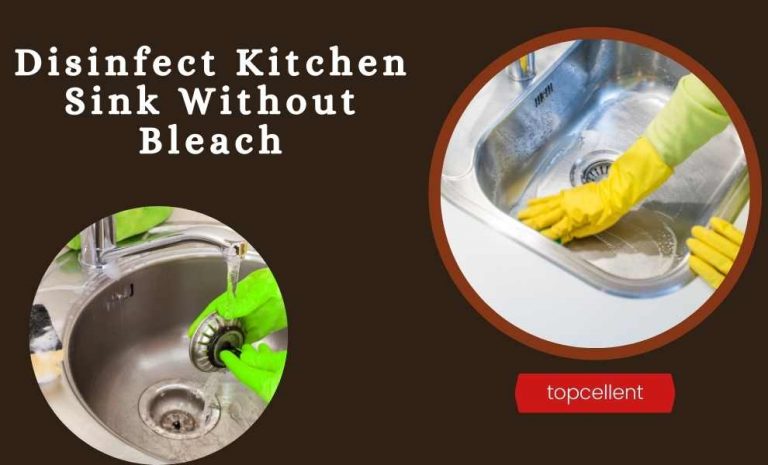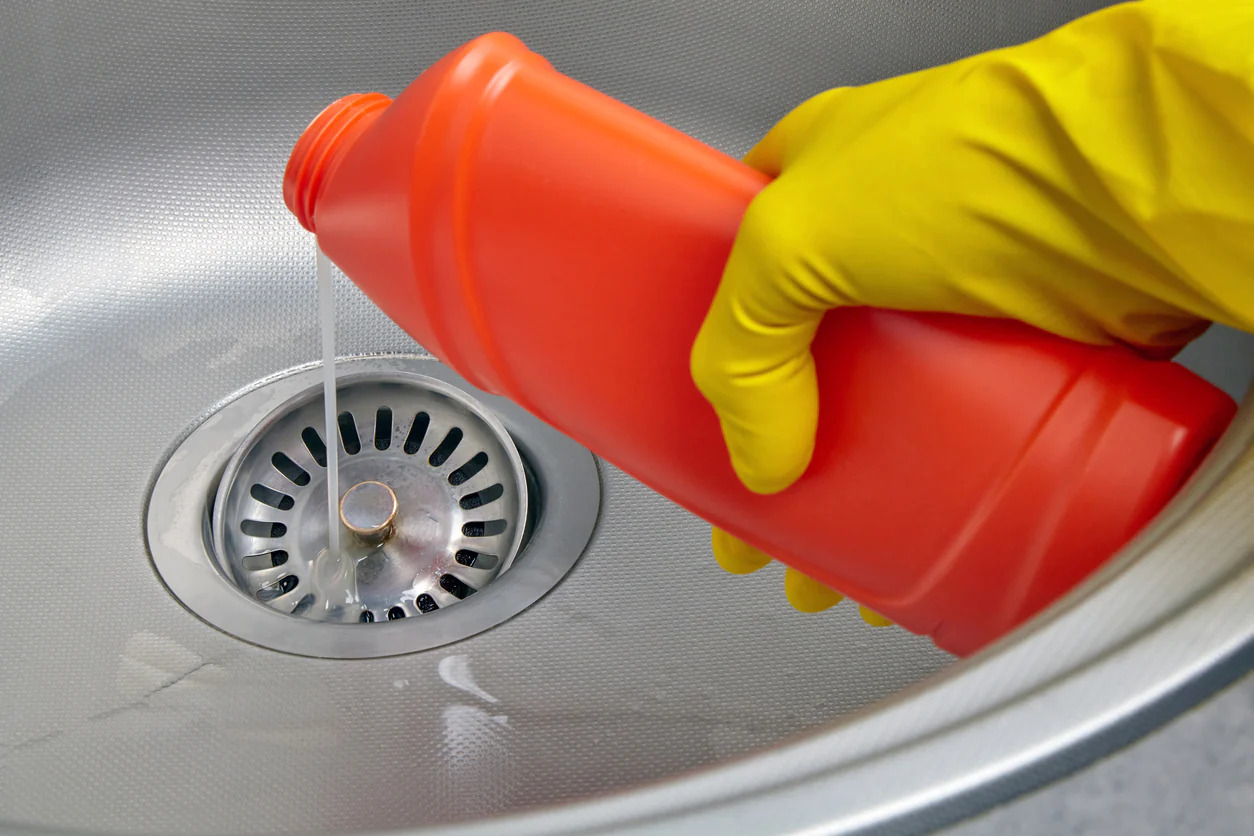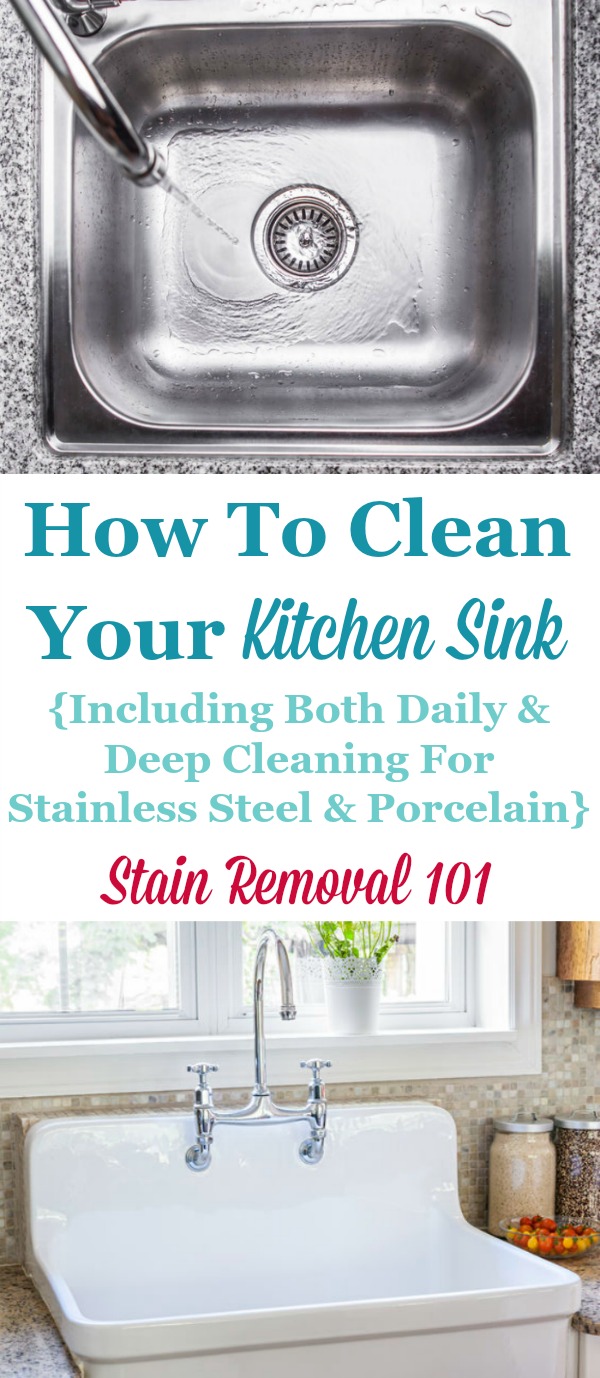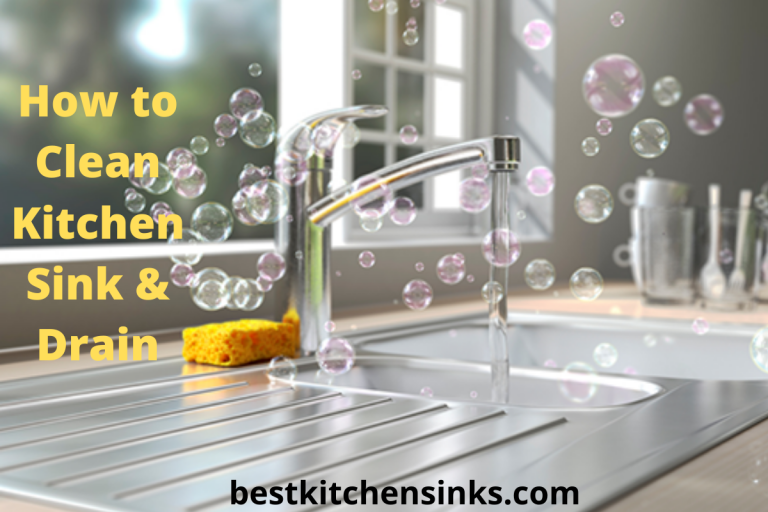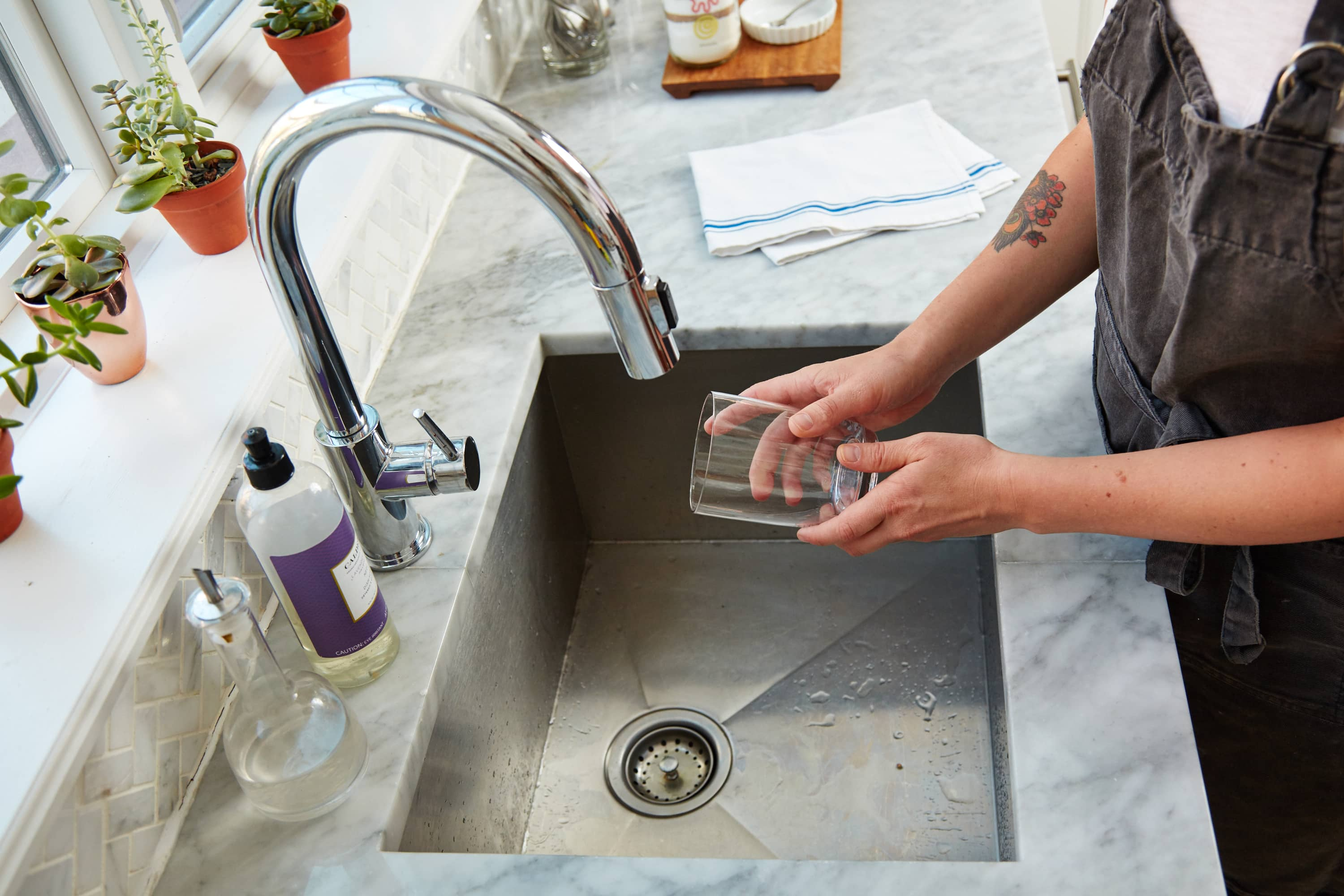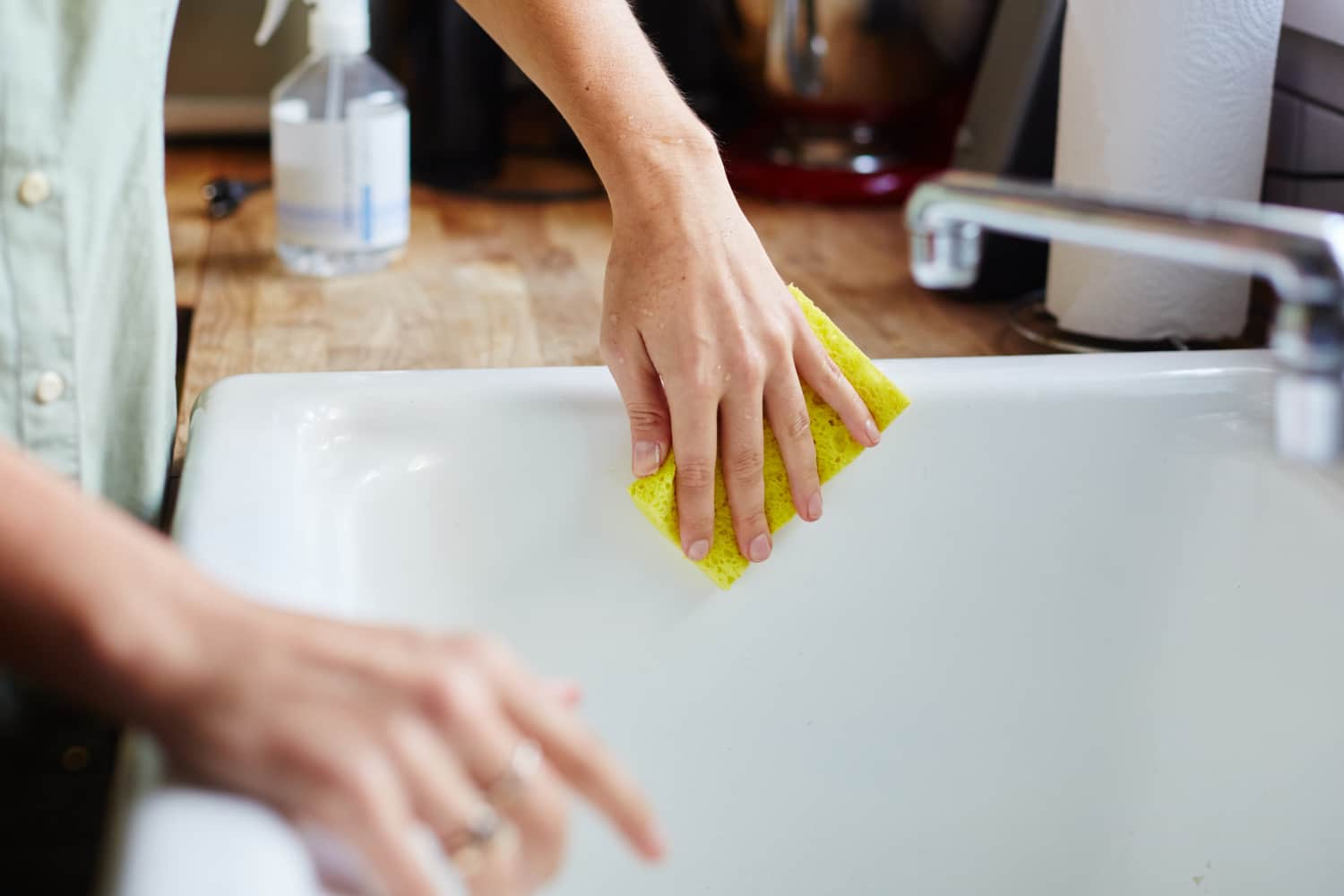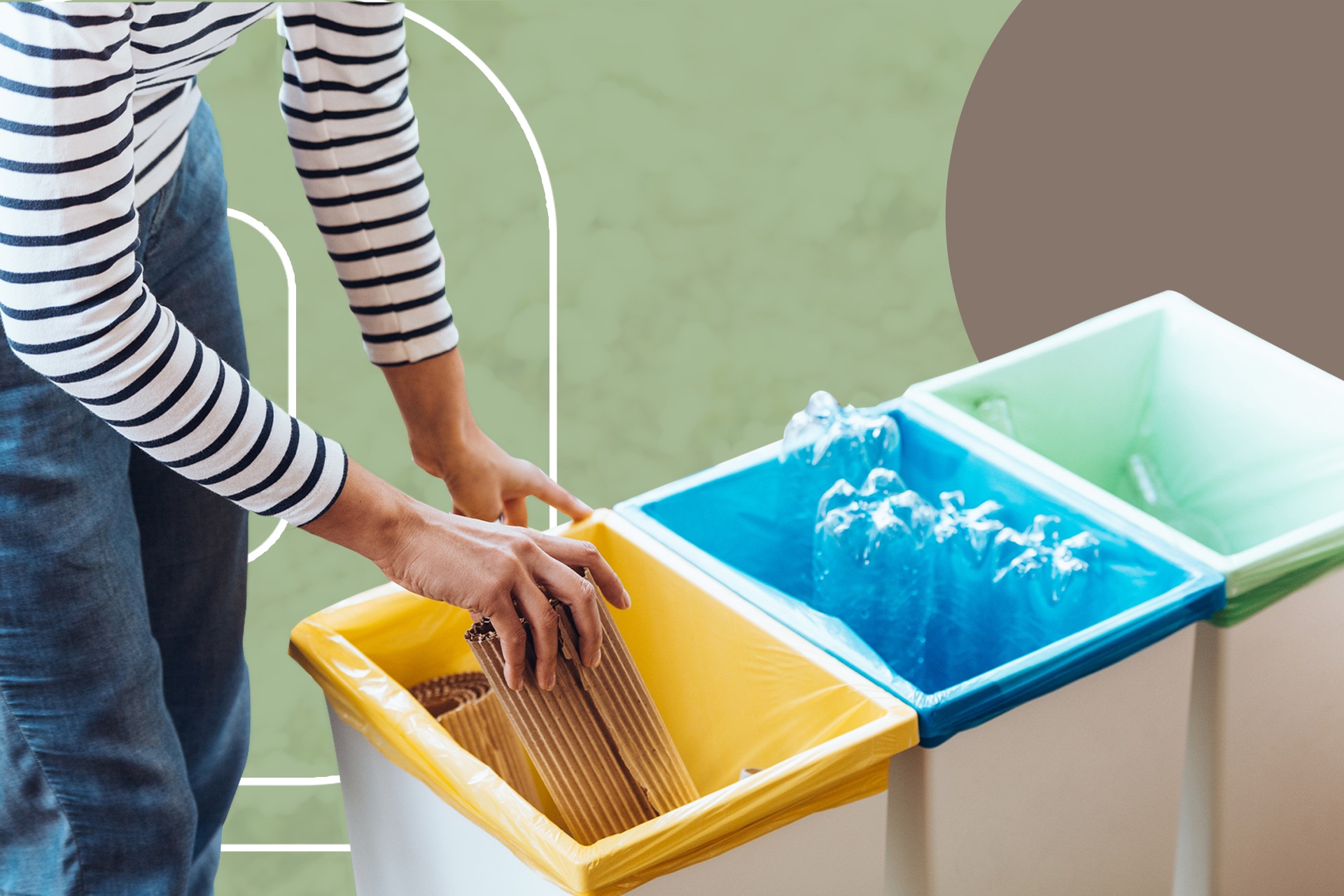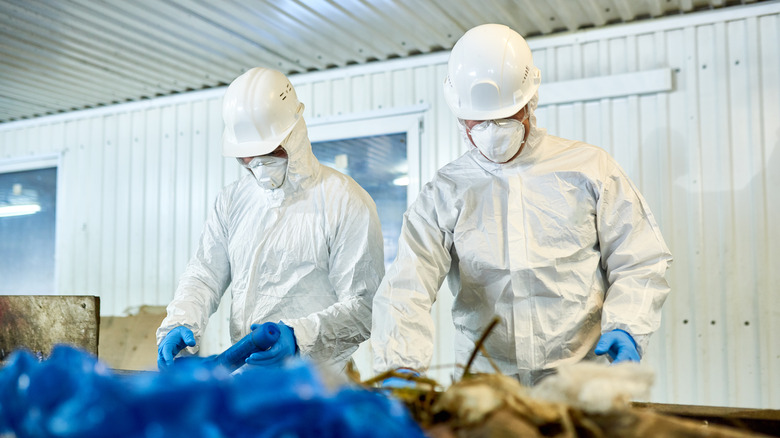Can I Put Bleach Down the Kitchen Sink?
If you're like most people, you probably use bleach as a go-to cleaning solution for many surfaces in your home. However, when it comes to using bleach in your kitchen sink, you may have some doubts. Can you really pour bleach down the kitchen sink? Is it safe to do so? In this article, we'll answer these questions and more, providing you with all the information you need about using bleach in your kitchen sink.
Is It Safe to Pour Bleach Down the Kitchen Sink?
The short answer is no, it is not safe to pour bleach down the kitchen sink. While bleach is a powerful cleaning agent, it can also be harmful to your plumbing and the environment. When bleach comes into contact with organic matter, such as food particles or grease, it can create toxic fumes. These fumes can be harmful to your health and can also cause damage to your pipes.
What Happens If You Pour Bleach Down the Kitchen Sink?
When bleach is poured down the kitchen sink, it can react with the organic materials present in your drain, creating a chemical reaction. This reaction can release toxic gases and cause damage to your pipes. Additionally, bleach can also kill the beneficial bacteria in your septic tank, disrupting the natural process of breaking down waste. This can lead to costly repairs and potential damage to the environment.
Can You Pour Bleach Down the Kitchen Sink to Unclog It?
If your kitchen sink is clogged, it may be tempting to pour bleach down the drain to clear the blockage. However, this is not a safe or effective method. Bleach can actually make the clog worse by creating a chemical reaction with the materials causing the blockage. This can result in a more stubborn and difficult clog to remove.
How to Safely Dispose of Bleach Down the Kitchen Sink
If you have used bleach to clean your kitchen sink, it is important to dispose of it properly. The best way to do this is to dilute the bleach with water and then pour it down the toilet. This will ensure that the bleach is properly diluted and will not cause harm to your plumbing or the environment. Alternatively, you can also pour the diluted bleach into a container and dispose of it at a hazardous waste facility.
Alternatives to Pouring Bleach Down the Kitchen Sink
If you're looking for a safer and more eco-friendly way to clean your kitchen sink, there are many alternatives to using bleach. One option is to use a mixture of baking soda and vinegar. This combination can help to break down clogs and eliminate odors without the use of harsh chemicals. Another option is to use a natural all-purpose cleaner that is specifically designed for kitchen surfaces.
Why You Shouldn't Pour Bleach Down the Kitchen Sink
Aside from the potential harm to your plumbing and the environment, there are many other reasons why you should avoid pouring bleach down the kitchen sink. Bleach is a corrosive substance and can cause damage to your sink and drain over time. It can also discolor and damage your pipes, leading to costly repairs. In addition, bleach is harmful to aquatic life when it enters our waterways through the drain.
How to Clean Your Kitchen Sink Without Bleach
If you've been using bleach to clean your kitchen sink, you may be wondering how you can keep it clean without using this harsh chemical. Fortunately, there are many natural and effective methods for cleaning your sink. One option is to use a mixture of lemon and salt to scrub away stains and odors. You can also use a paste of baking soda and water to remove tough grime and grease.
What to Do If You Accidentally Pour Bleach Down the Kitchen Sink
If you accidentally pour bleach down the kitchen sink, it's important to act quickly to minimize any potential damage. First, open all windows and doors to allow for proper ventilation. Next, flush the sink with cold water for several minutes to dilute the bleach. If you have a septic system, avoid using any water for a few hours to allow the bleach to dissipate before using the sink again.
Properly Disposing of Bleach Down the Kitchen Sink
If you have a small amount of bleach leftover from cleaning your kitchen sink, it's important to dispose of it properly. As mentioned earlier, the best method is to dilute it with water and pour it down the toilet. However, if you have a large amount of bleach or are unsure of how to dispose of it, contact your local waste management facility for guidance.
In conclusion, it is not safe to put bleach down the kitchen sink. Not only can it cause harm to your plumbing and the environment, but it is also not an effective method for cleaning and unclogging your sink. By using alternative, natural cleaning methods, you can keep your kitchen sink clean and safe without the use of harsh chemicals. And remember, always properly dispose of any leftover bleach to protect your home and the planet.
The Dangers of Pouring Bleach Down Your Kitchen Sink
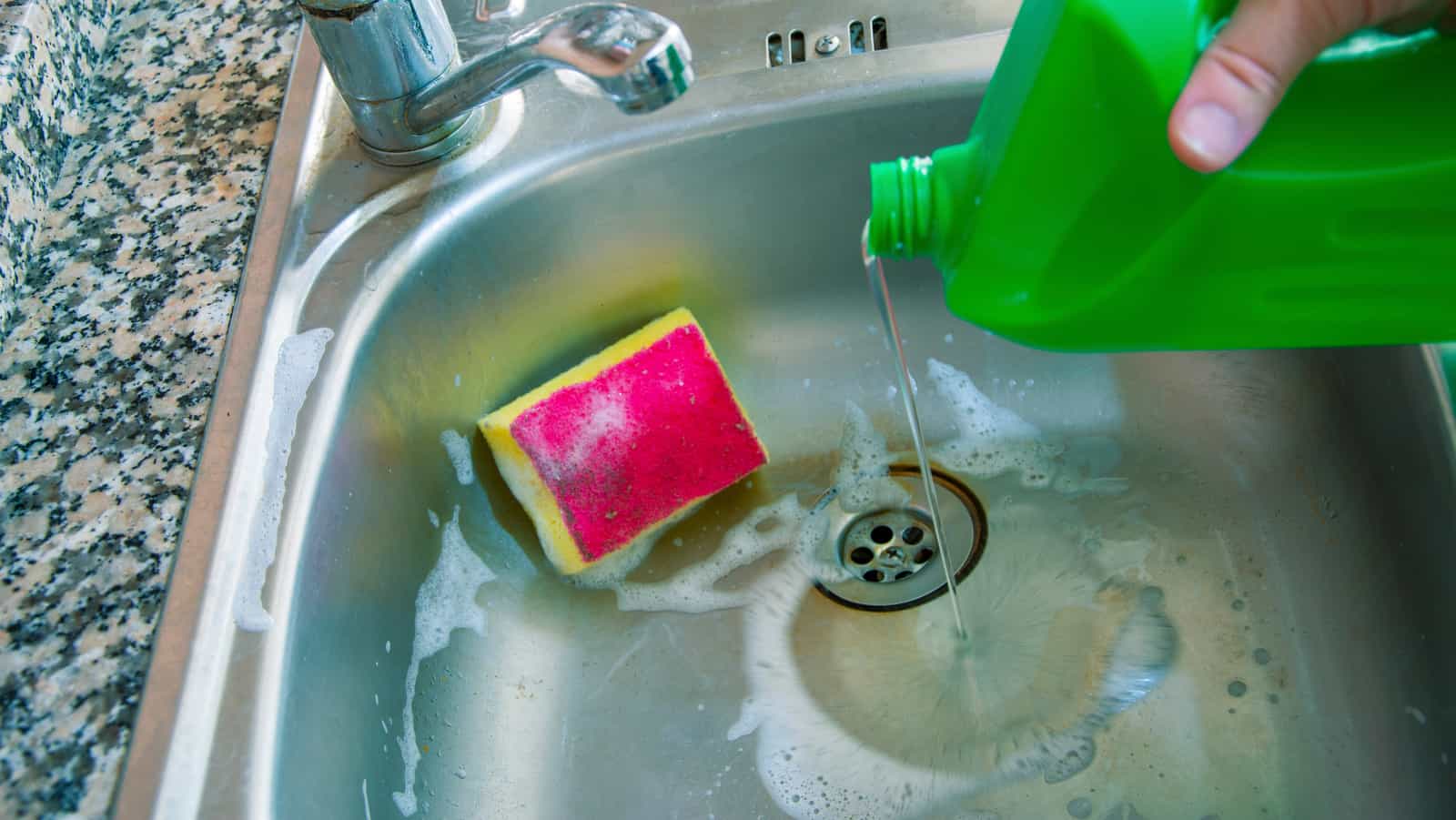
Why You Should Avoid Using Bleach for Drain Cleaning
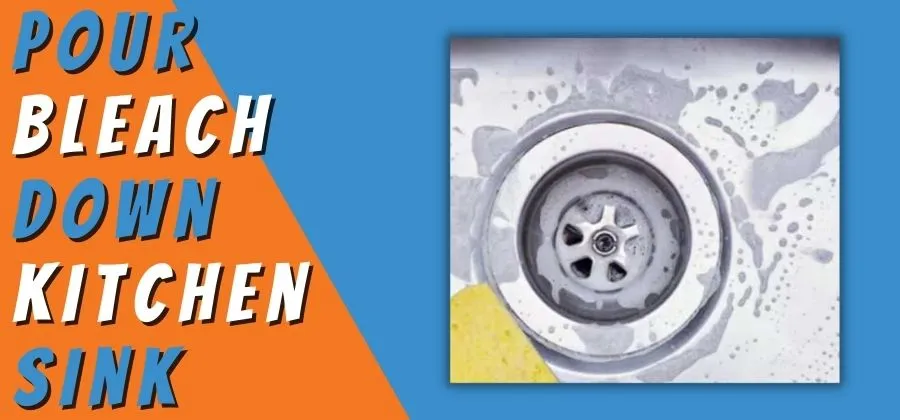 Bleach is a powerful cleaning agent that is commonly used in households to disinfect and remove tough stains. However, when it comes to unclogging your kitchen sink, bleach is not the best solution. While it may seem like an easy and effective way to clear your drain, pouring bleach down your kitchen sink can actually cause more harm than good.
Featured Keywords: Bleach, Kitchen Sink
Bleach is a powerful cleaning agent that is commonly used in households to disinfect and remove tough stains. However, when it comes to unclogging your kitchen sink, bleach is not the best solution. While it may seem like an easy and effective way to clear your drain, pouring bleach down your kitchen sink can actually cause more harm than good.
Featured Keywords: Bleach, Kitchen Sink
The Effects of Bleach on Your Plumbing System
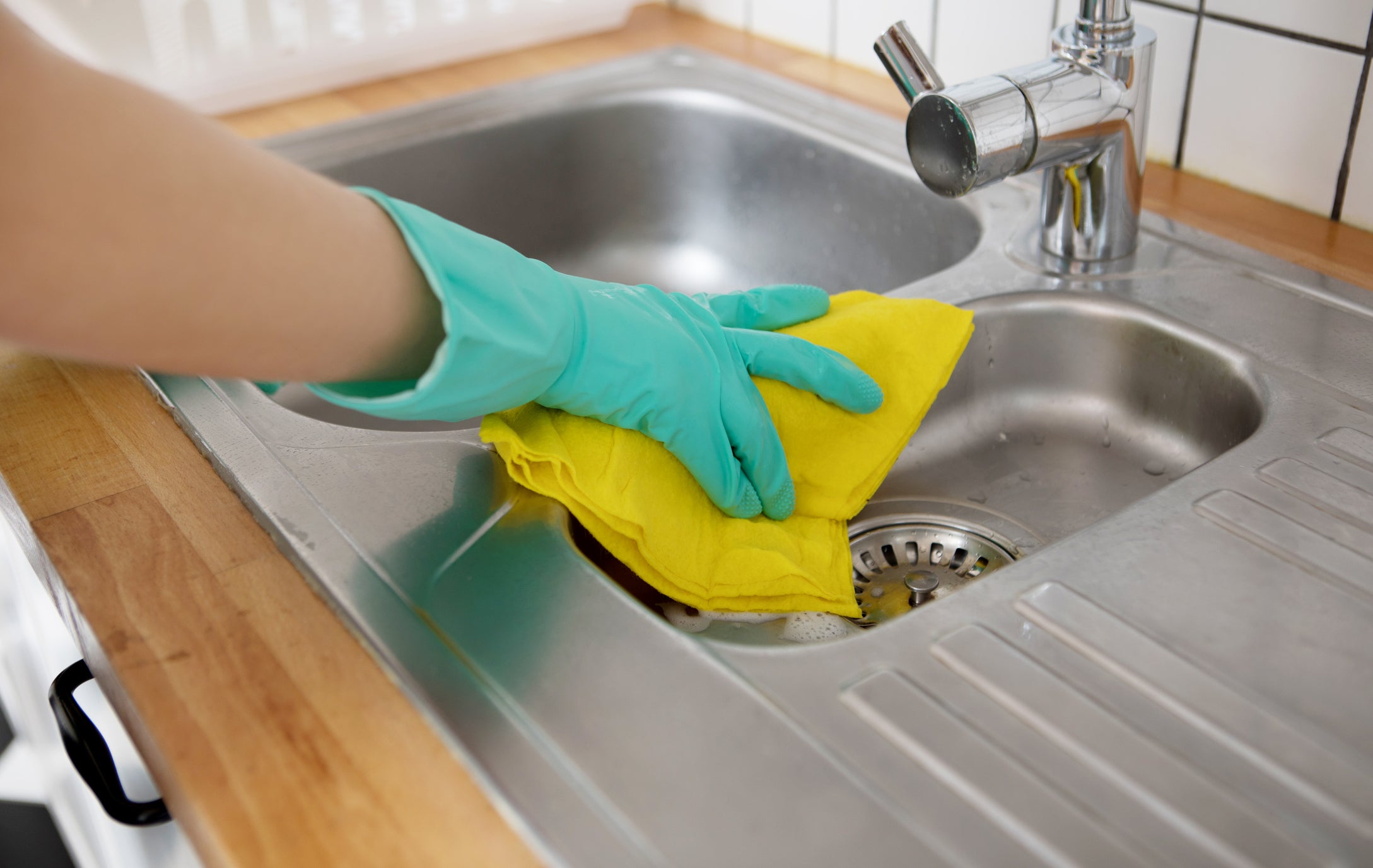 Most people are unaware that bleach is highly corrosive, and when poured down a drain, it can damage your plumbing system. This is because bleach contains chemicals that can eat away at the pipes, causing them to weaken and even break over time. This can lead to costly repairs and replacements, not to mention the potential for water damage to your home.
Featured Keywords: Corrosive, Pipes, Plumbing System
Most people are unaware that bleach is highly corrosive, and when poured down a drain, it can damage your plumbing system. This is because bleach contains chemicals that can eat away at the pipes, causing them to weaken and even break over time. This can lead to costly repairs and replacements, not to mention the potential for water damage to your home.
Featured Keywords: Corrosive, Pipes, Plumbing System
The Environmental Impact
 Aside from the damage to your plumbing system, pouring bleach down your kitchen sink can also have a negative impact on the environment. When bleach mixes with other chemicals and substances in your pipes, it can create toxic fumes that can be harmful to the environment and wildlife. Additionally, bleach can seep into the ground and contaminate water sources, causing harm to aquatic life.
Featured Keywords: Environment, Toxic Fumes, Contaminate
Aside from the damage to your plumbing system, pouring bleach down your kitchen sink can also have a negative impact on the environment. When bleach mixes with other chemicals and substances in your pipes, it can create toxic fumes that can be harmful to the environment and wildlife. Additionally, bleach can seep into the ground and contaminate water sources, causing harm to aquatic life.
Featured Keywords: Environment, Toxic Fumes, Contaminate
Alternative Solutions for Unclogging Your Kitchen Sink
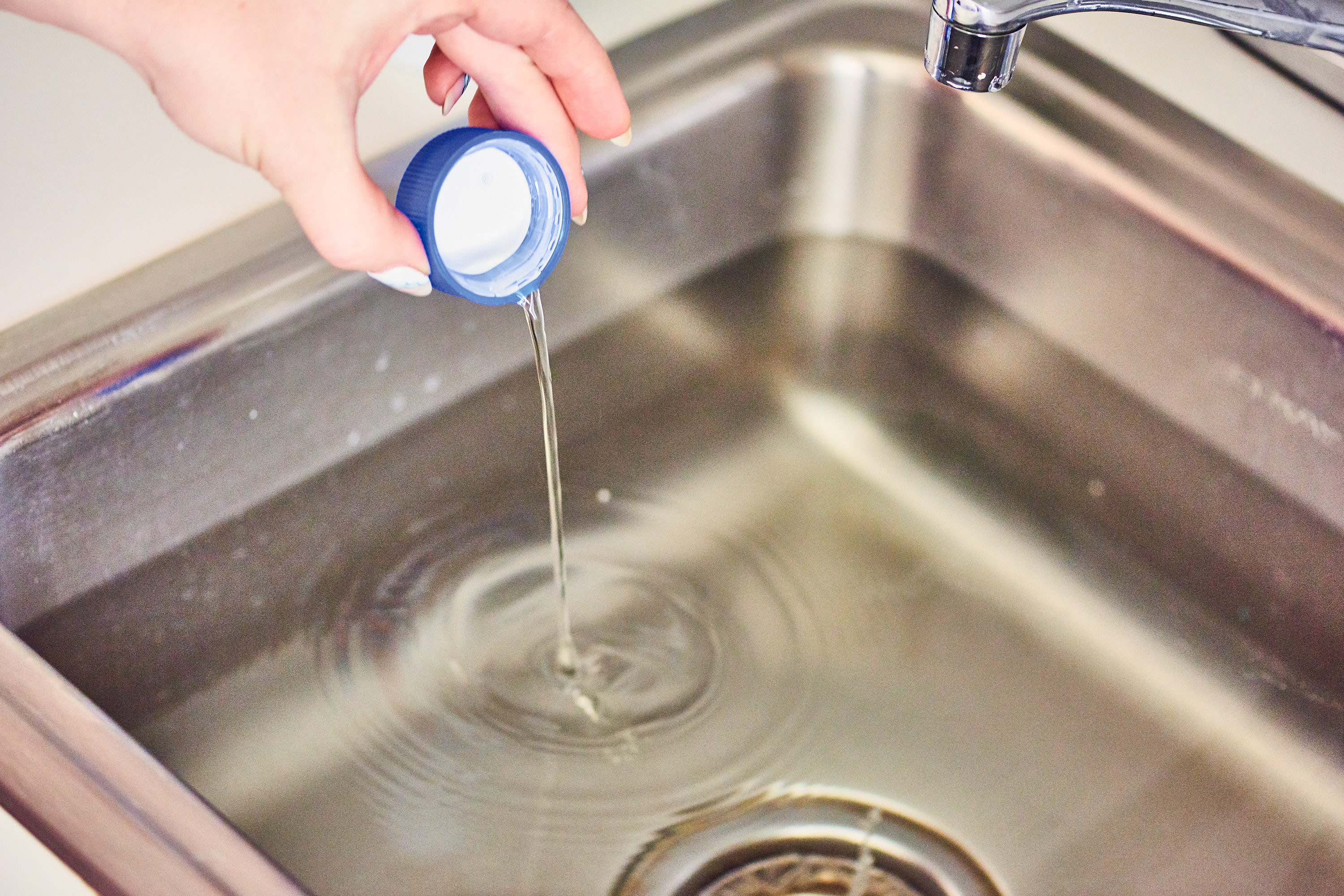 Instead of using bleach, there are safer and more effective methods for unclogging your kitchen sink. One option is to use a plunger to dislodge any blockages. Another method is to create a natural drain cleaner using ingredients like baking soda and vinegar. These options are not only safer for your plumbing and the environment, but they are also more cost-effective.
Featured Keywords: Alternative Solutions, Plunger, Natural Drain Cleaner
Instead of using bleach, there are safer and more effective methods for unclogging your kitchen sink. One option is to use a plunger to dislodge any blockages. Another method is to create a natural drain cleaner using ingredients like baking soda and vinegar. These options are not only safer for your plumbing and the environment, but they are also more cost-effective.
Featured Keywords: Alternative Solutions, Plunger, Natural Drain Cleaner
In Conclusion
 In summary, while bleach may be a powerful cleaning agent, it is not suitable for unclogging your kitchen sink. Not only can it damage your plumbing system, but it can also harm the environment. It is important to consider alternative solutions that are safer and more sustainable for both your home and the planet. Remember, when it comes to cleaning your kitchen sink, it's best to steer clear of bleach.
Featured Keywords: Unclogging, Damage, Sustainable
In summary, while bleach may be a powerful cleaning agent, it is not suitable for unclogging your kitchen sink. Not only can it damage your plumbing system, but it can also harm the environment. It is important to consider alternative solutions that are safer and more sustainable for both your home and the planet. Remember, when it comes to cleaning your kitchen sink, it's best to steer clear of bleach.
Featured Keywords: Unclogging, Damage, Sustainable



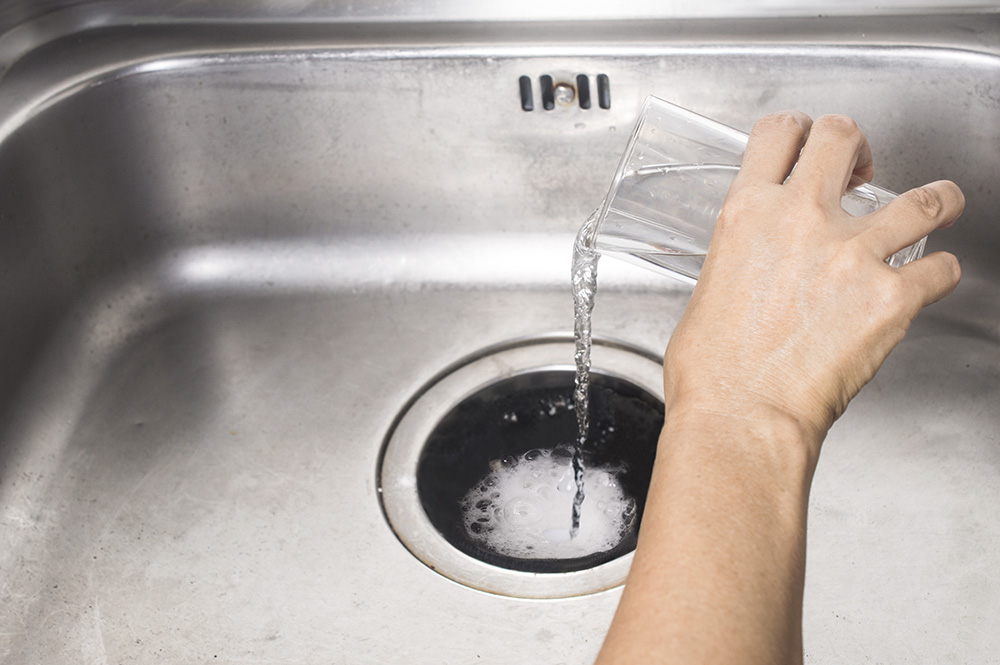
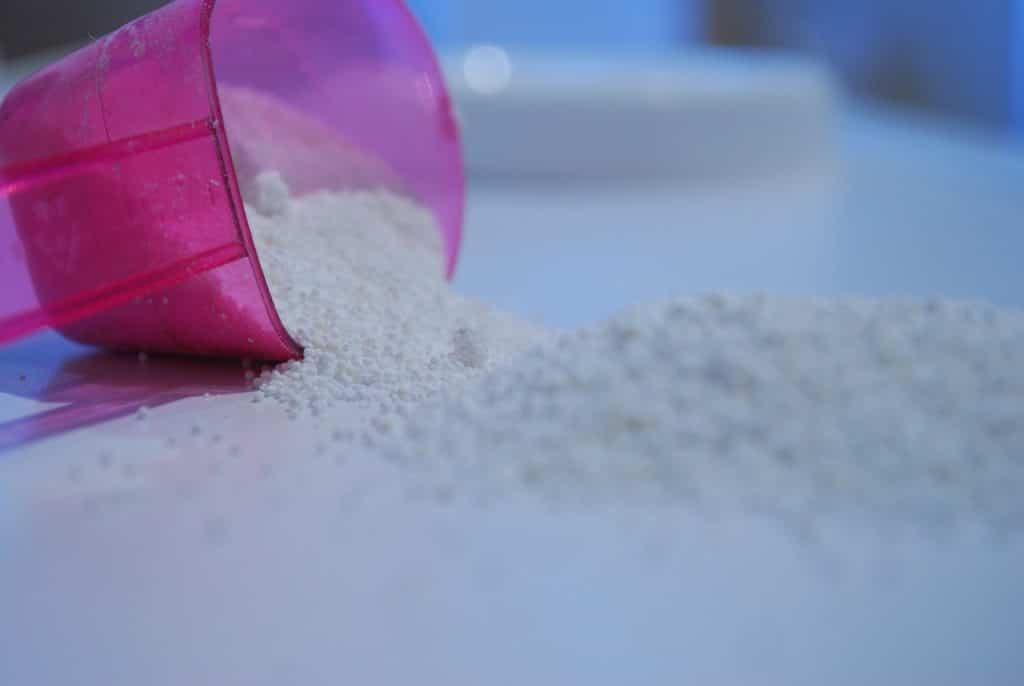
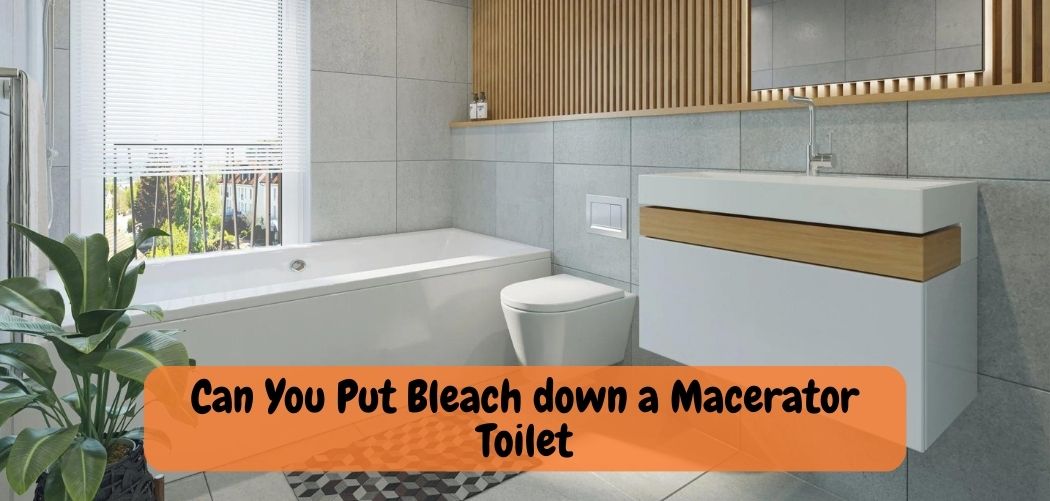
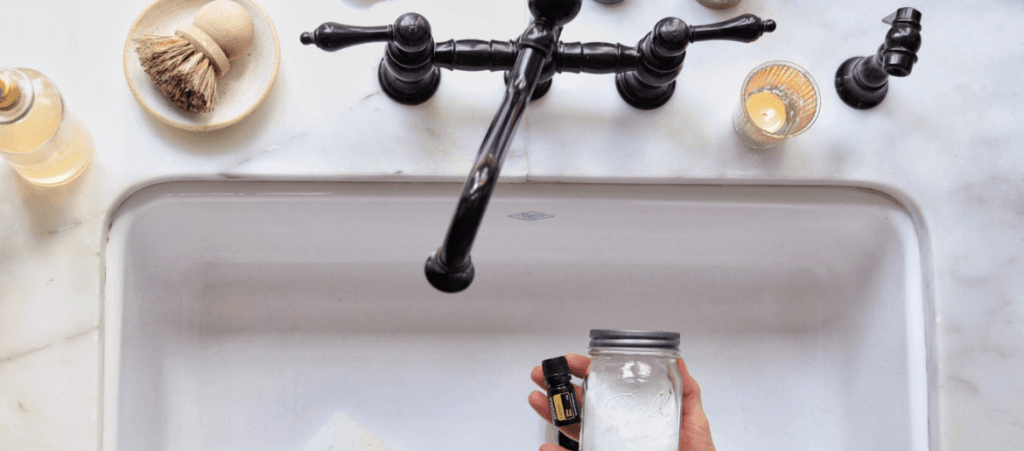
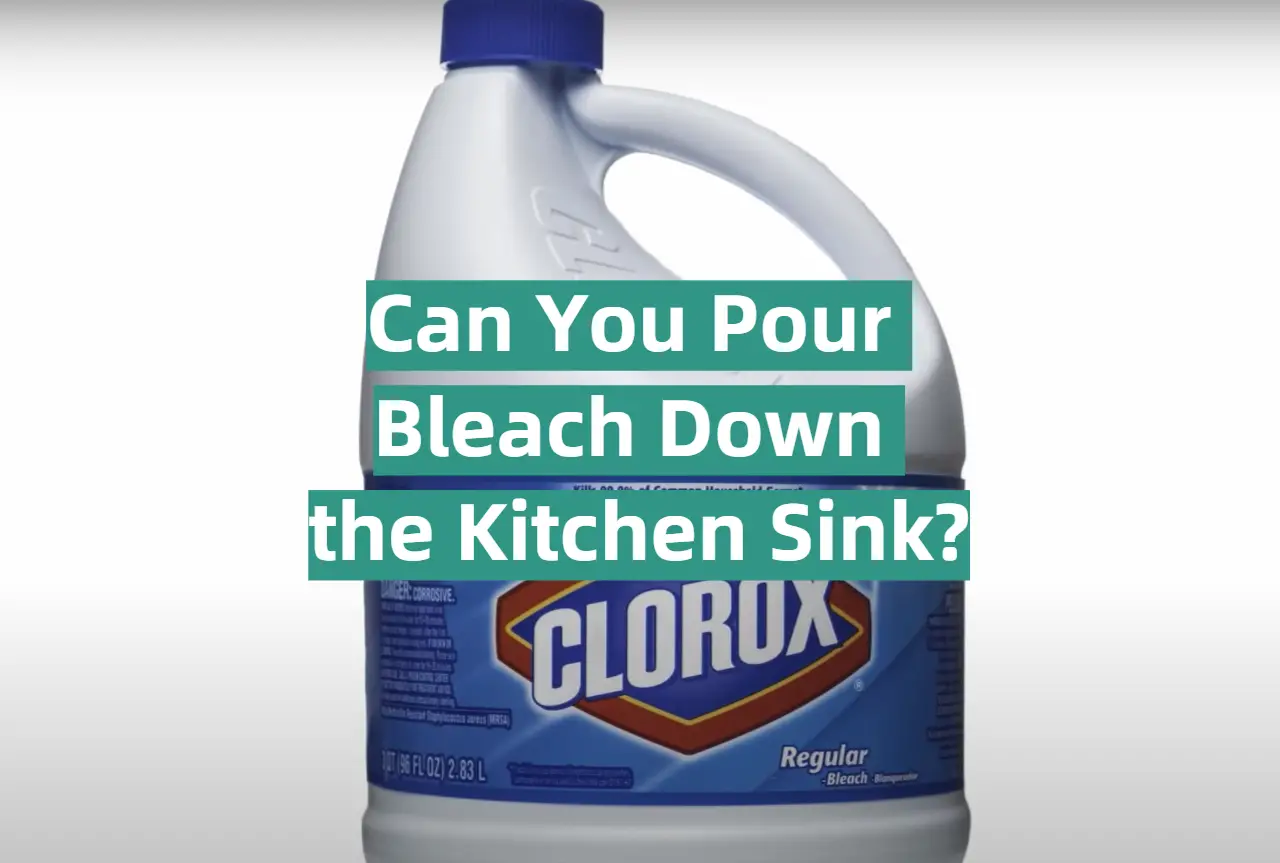
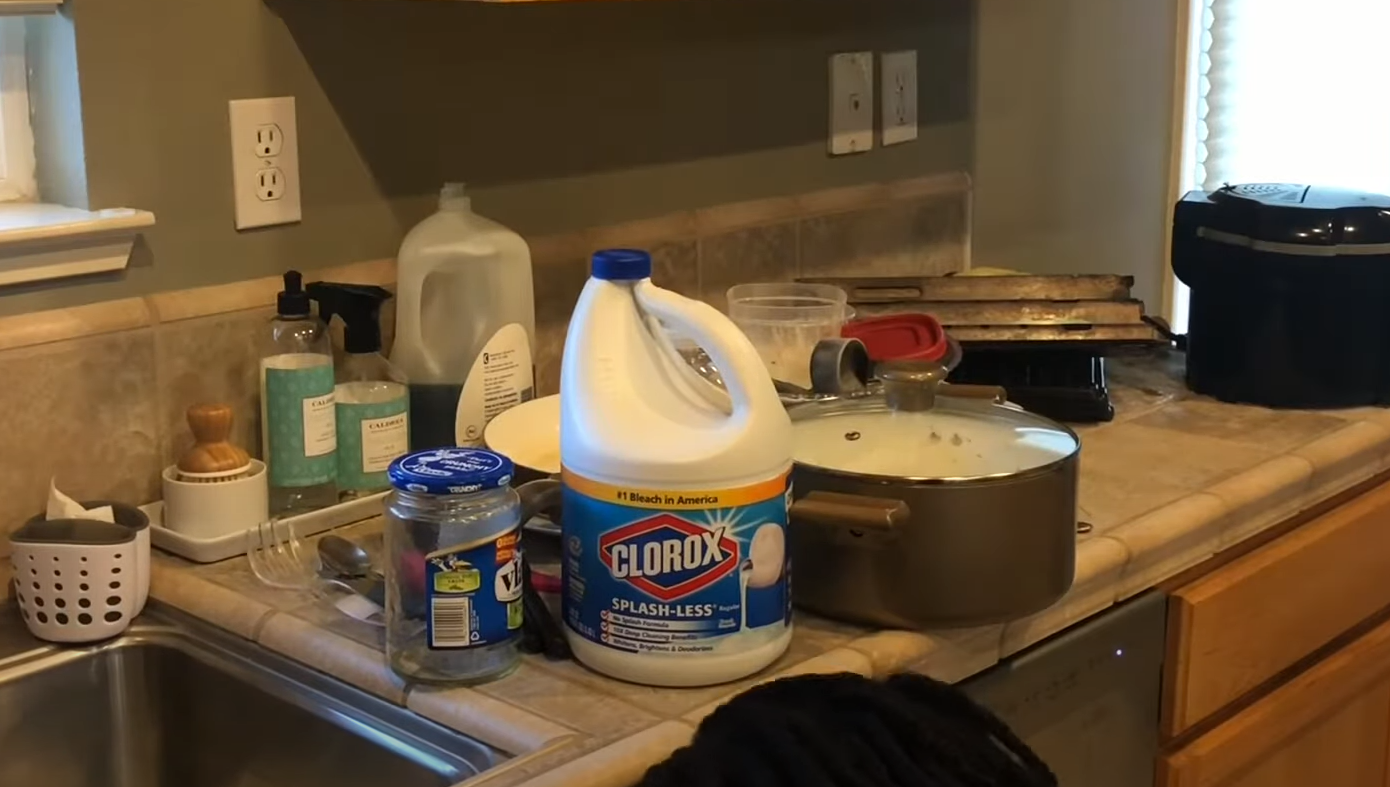



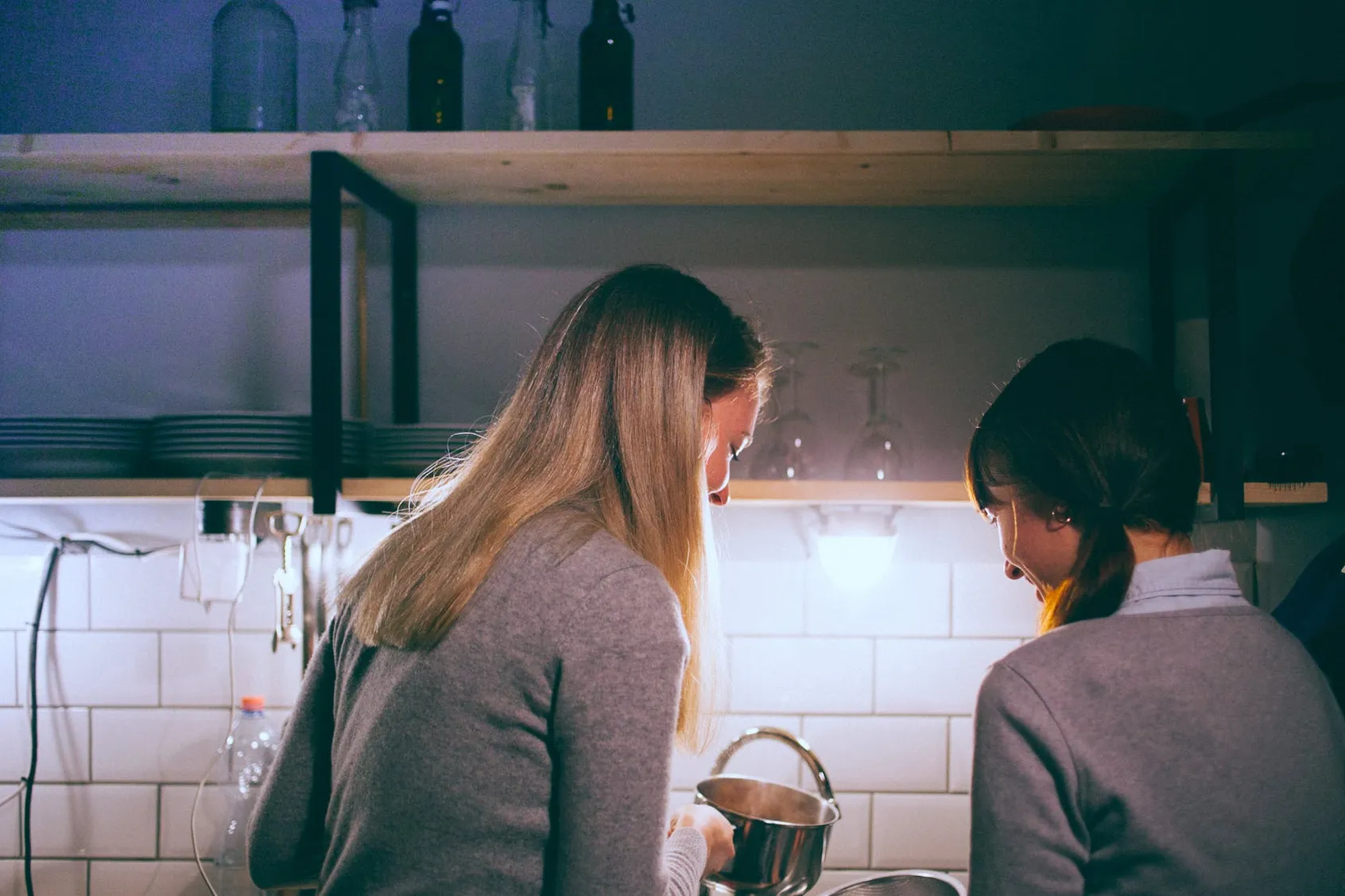

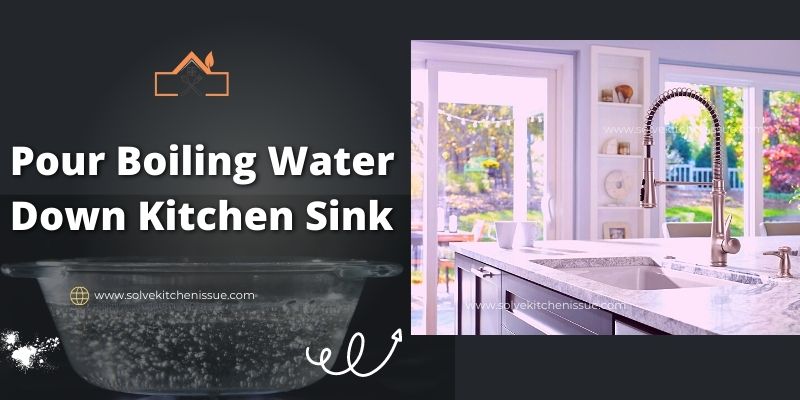
.jpg)

